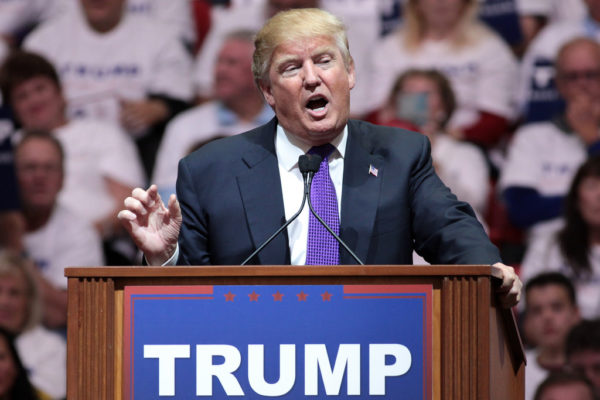
From his comments on immigration to the discrediting of John McCain –a member of his own party –Donald Trump has built a viral reputation during the 2016 presidential race.
Since he launched his campaign in June 2015, the businessman’s success in the polls has caused a lot of confusion.
“Maybe they don’t want a straight-talker. Maybe they don’t. But I am so tired of this politically correct crap,” Trump said to the Greater Charleston Business Association and the South Carolina African-American Chamber of Commerce in September.
Could his refrainment from being “politically correct” be a potential obstacle for Republican candidates running for local offices?
“I haven’t seen a direct impact on my particular local campaign,” said Eric Seidel, a Republican running for Clerk of Court in Hillsborough County. “But I can tell you, from what folks are coming up and telling me, Trump is making people pay closer attention to the election in general.”
Contrary to what some may believe, there is a formula to this madness – and one that’s proving to be effective as Trump still manages to lead in the polls among Republican candidates.
Mark Proctor, owner of the consulting firm Mark Proctor & Associates that represents business clients and political candidates, explained how presidential elections influence local campaigns.
“There is no value in fighting against presidential campaigns,” said Proctor. “Many (local) candidates will encounter the down ballot on election day … Voters will determine who they want as president, and then vote for the local candidates in that party.”
Considering the “down ballot,” Proctor explains Trump’s method to gain votes.
“A candidate should identify likely voters,” he said, referring to individuals who are typically active during elections. “This is determined by looking through voting records.”
After finding the likely voters, Proctor says the candidate should target the “super voter” – someone who has a consistently high voting turnout.
In this scenario, the goal is to reach the moderate voters who are more likely to be swayed. A strong Democrat or Republican will typically vote within their party lines, so the candidate could waste time focusing on them.
Now, this is where Trump’s controversial speeches come into play.
According to Proctor, Trump’s sharp tongue has captured a new category of voters who are brought into political awareness by his headlining/polarizing comments.
And because of Trump’s polarizing behavior behavior, Proctor says voters are forced to decide whether they are for him or against him – with no in between.
“The more he speaks, the more attention he gets.”
But Trump may not be the only candidate using this method.
Proctor pointed out that Democratic candidate Bernie Sanders, V-I, also takes a nontraditional approach in his platform, speaking out against the political games politicians play.
He said that the two candidates, despite their wide differences, represent “the attitude of change.”
“I think the big problem this country has is being politically correct,” said Trump at a GOP presidential debate in August 2015. “I’ve been challenged by so many people and I don’t, frankly, have time for total political correctness. And to be honest with you, this country doesn’t have time either.”


